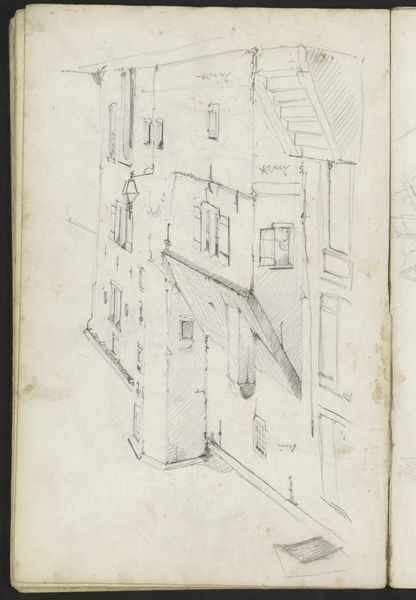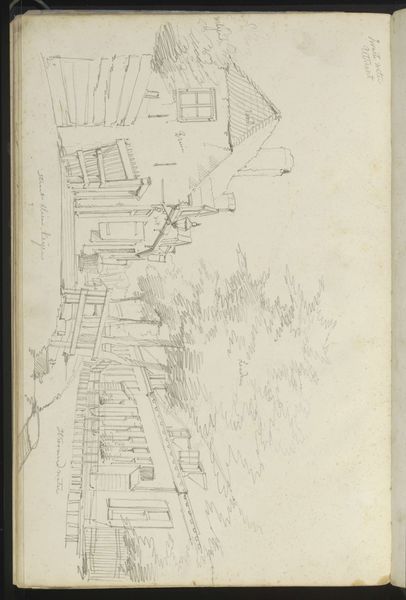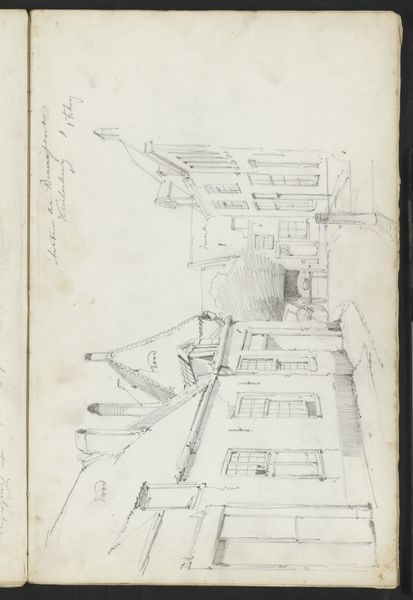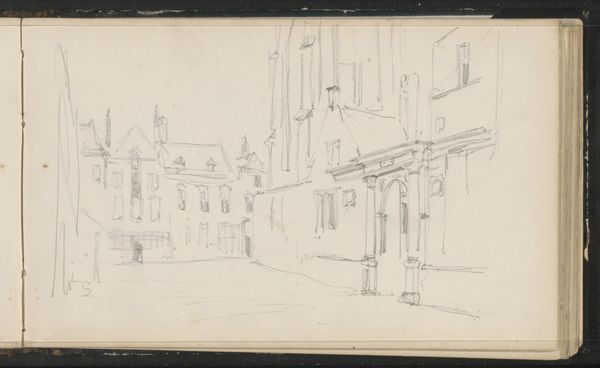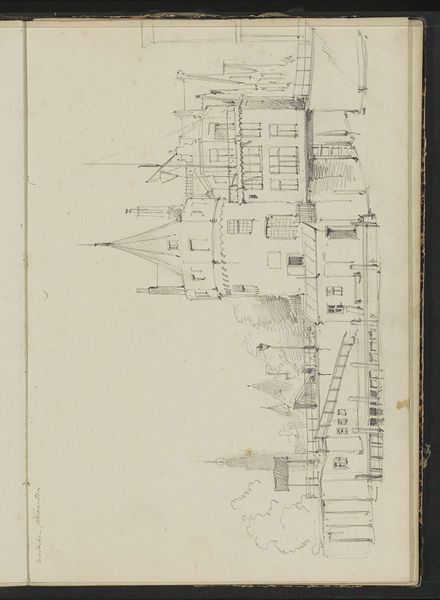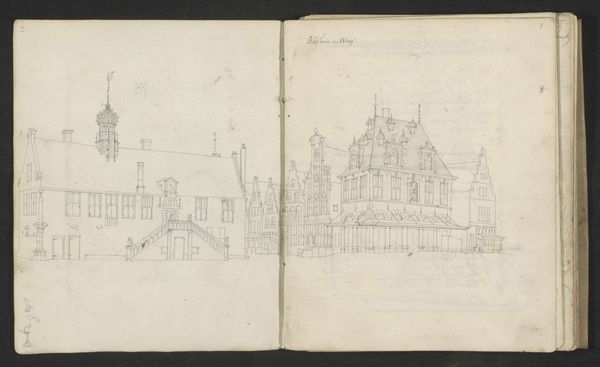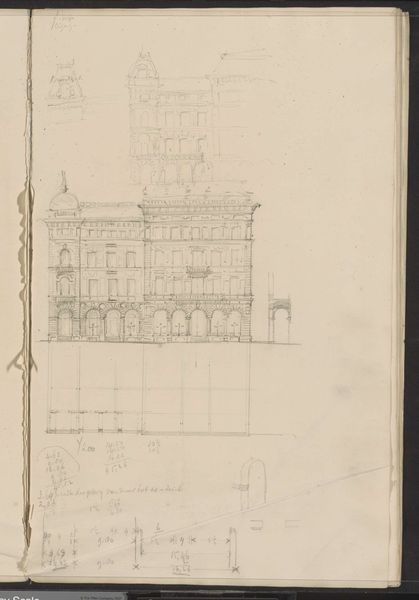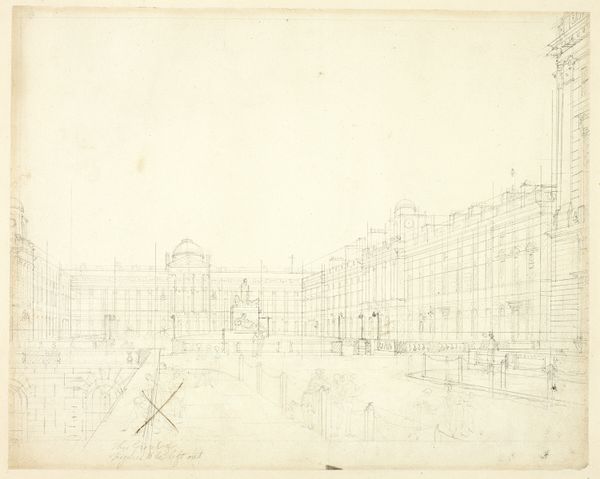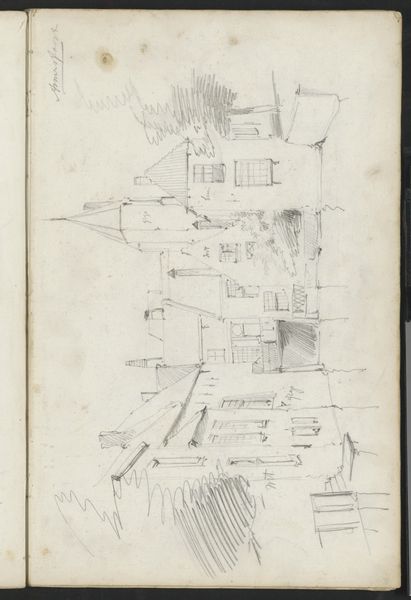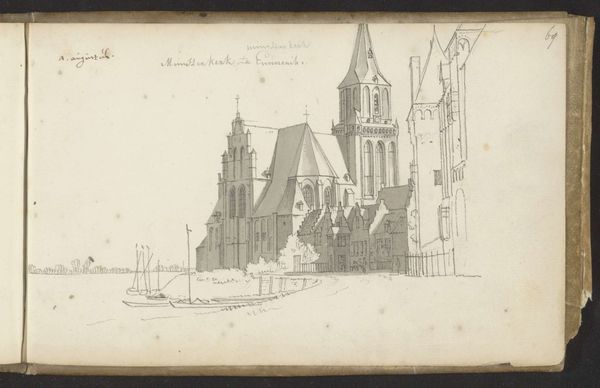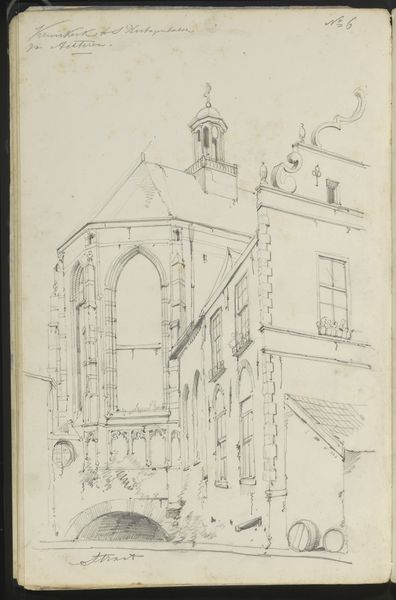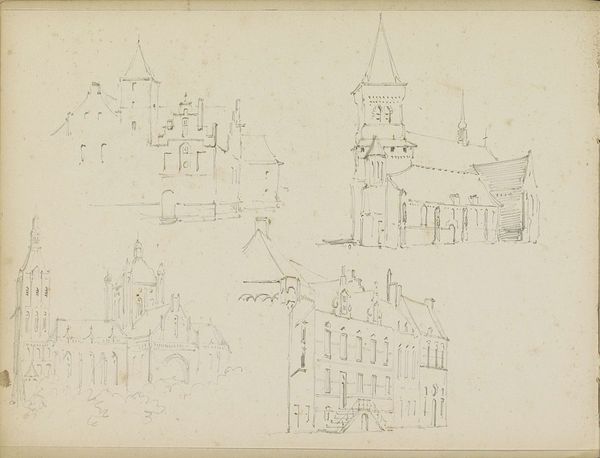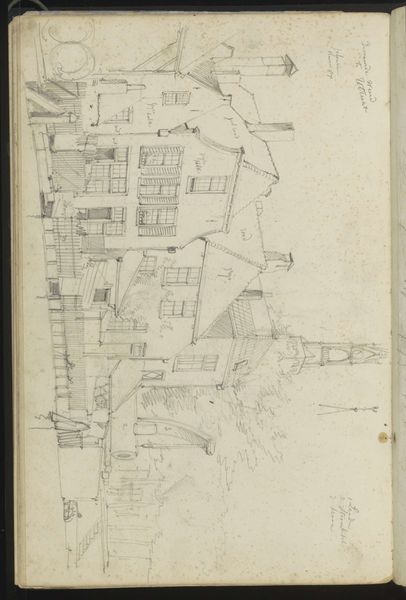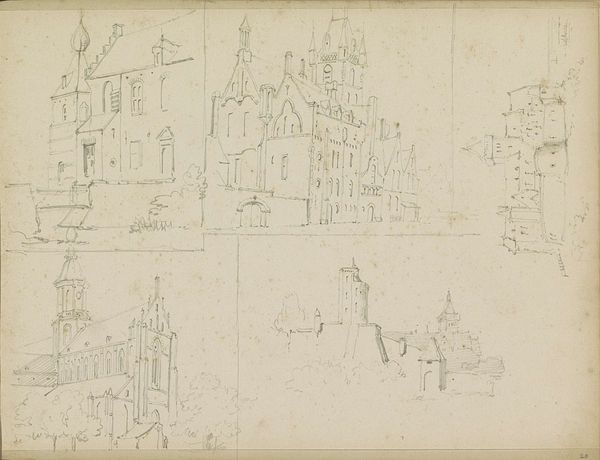
drawing, paper, pencil
#
drawing
#
aged paper
#
quirky sketch
#
baroque
#
sketch book
#
paper
#
personal sketchbook
#
sketchwork
#
pen-ink sketch
#
pencil
#
pen work
#
sketchbook drawing
#
cityscape
#
genre-painting
#
storyboard and sketchbook work
#
sketchbook art
Copyright: Rijks Museum: Open Domain
Editor: So, here we have Cornelis Pronk's "Oosterkerk te Hoorn," dating from around 1728 to 1732. It's a delicate pencil and pen drawing of a cityscape. What immediately strikes me is the incredibly precise detail in this sketch - it looks almost architectural in its accuracy. What do you see in this piece? Curator: Beyond the architectural precision, consider Pronk’s role in shaping visual culture of the Dutch Golden Age. His meticulous renderings of buildings, like the Oosterkerk, served a vital documentary purpose. Drawings such as this preserve not just the appearance of the building but its cultural significance and, to a point, the ideals of the space and its culture. This precise linework signifies the importance of observation, recording, and disseminating visual knowledge. This was an early method of dissemination; before the age of printed images. Editor: So, this wasn't necessarily created for an artistic purpose in the modern sense? It had a different role in society at the time? Curator: Exactly. Consider the institutional frameworks supporting this kind of artistic practice. The Oosterkerk wasn’t just a religious site; it was a hub for social activity, civic governance, and community identity. This drawing offers insights into Dutch urban planning and religious life but what about its distribution, and reception amongst viewers of that time? Editor: I guess you're right. I was immediately drawn to it from a fine arts point of view, but I was missing the deeper cultural picture of 18th century Holland. Curator: And that is exactly where we start to understand the complex web of art and culture that define what survives and its legacy to this day.
Comments
No comments
Be the first to comment and join the conversation on the ultimate creative platform.
